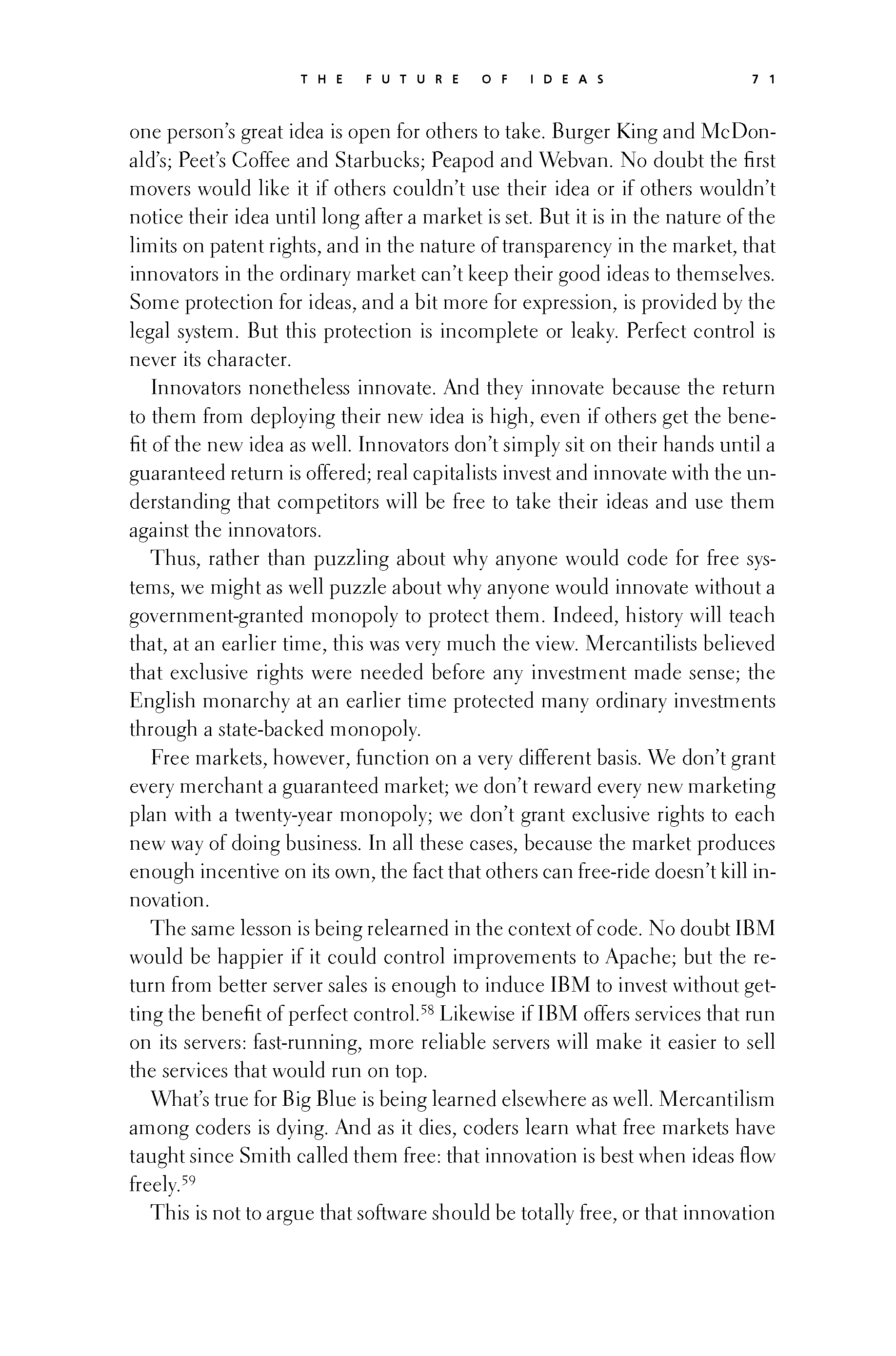 p070 _
-chap- _
toc-1 _
p071w _
toc-2 _
+chap+ _
p072
p070 _
-chap- _
toc-1 _
p071w _
toc-2 _
+chap+ _
p072
one person's great idea is open for others to take. Burger King and McDon-
ald's; Peet's Coffee and Starbucks; Peapod and Webvan. No doubt the first
movers would like it if others couldn't use their idea or if others wouldn't
notice their idea until long after a market is set. But it is in the nature of the
limits on patent rights, and in the nature of transparency in the market, that
innovators in the ordinary market can't keep their good ideas to themselves.
Some protection for ideas, and a bit more for expression, is provided by the
legal system. But this protection is incomplete or leaky. Perfect control is
never its character.
Innovators nonetheless innovate. And they innovate because the return
to them from deploying their new idea is high, even if others get the bene-
fit of the new idea as well. Innovators don't simply sit on their hands until a
guaranteed return is offered; real capitalists invest and innovate with the un-
derstanding that competitors will be free to take their ideas and use them
against the innovators.
Thus, rather than puzzling about why anyone would code for free sys-
tems, we might as well puzzle about why anyone would innovate without a
government-granted monopoly to protect them. Indeed, history will teach
that, at an earlier time, this was very much the view. Mercantilists believed
that exclusive rights were needed before any investment made sense; the
English monarchy at an earlier time protected many ordinary investments
through a state-backed monopoly.
Free markets, however, function on a very different basis. We don't grant
every merchant a guaranteed market; we don't reward every new marketing
plan with a twenty-year monopoly; we don't grant exclusive rights to each
new way of doing business. In all these cases, because the market produces
enough incentive on its own, the fact that others can free-ride doesn't kill in-
novation.
The same lesson is being relearned in the context of code. No doubt IBM
would be happier if it could control improvements to Apache; but the re-
turn from better server sales is enough to induce IBM to invest without get-
ting the benefit of perfect control.[4-58] Likewise if IBM offers services that run
on its servers: fast-running, more reliable servers will make it easier to sell
the services that would run on top.
What's true for Big Blue is being learned elsewhere as well. Mercantilism
among coders is dying. And as it dies, coders learn what free markets have
taught since Smith called them free: that innovation is best when ideas flow
freely.[4-59]
This is not to argue that software should be totally free, or that innovation
[[71]]
p070 _
-chap- _
toc-1 _
p071w _
toc-2 _
+chap+ _
p072